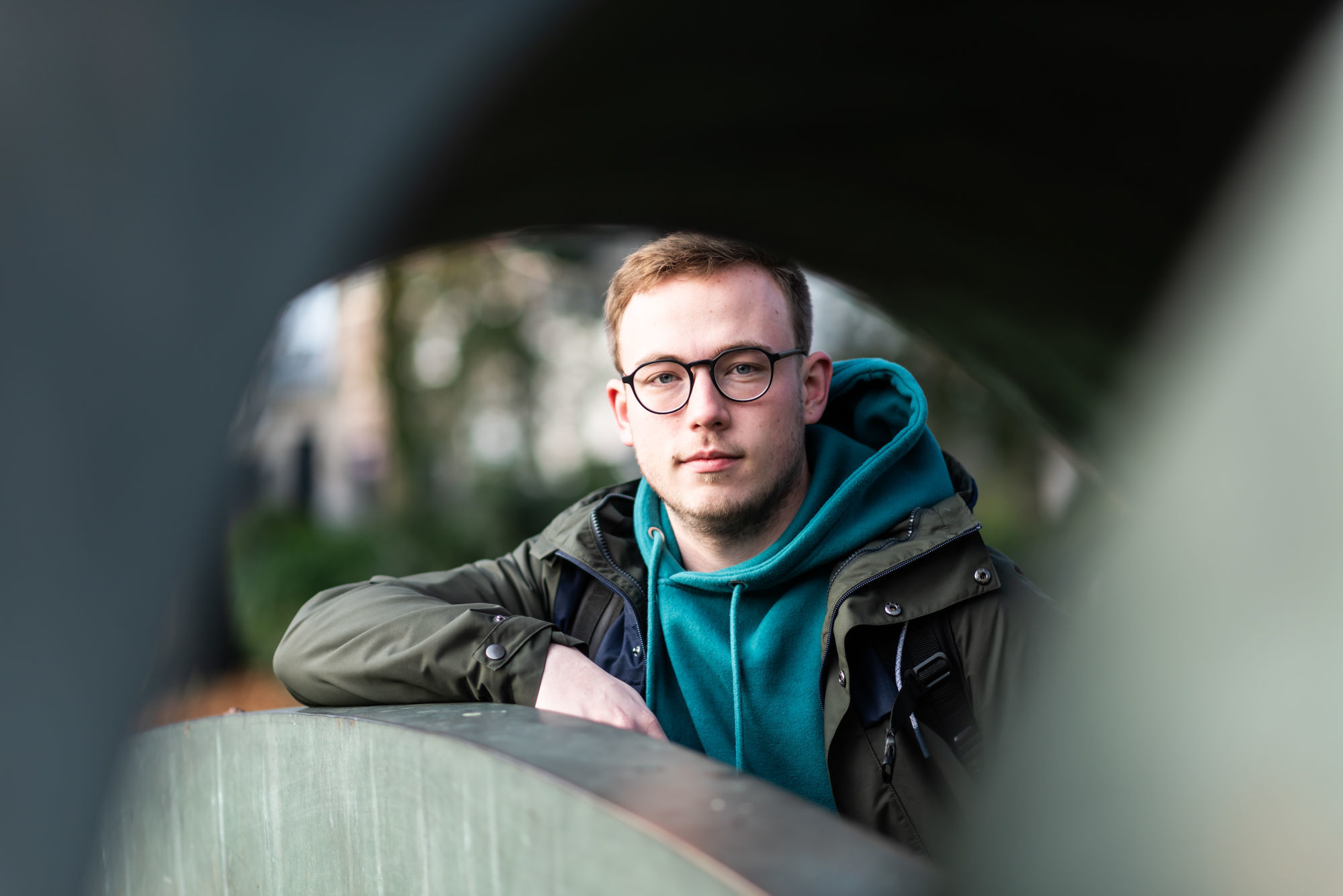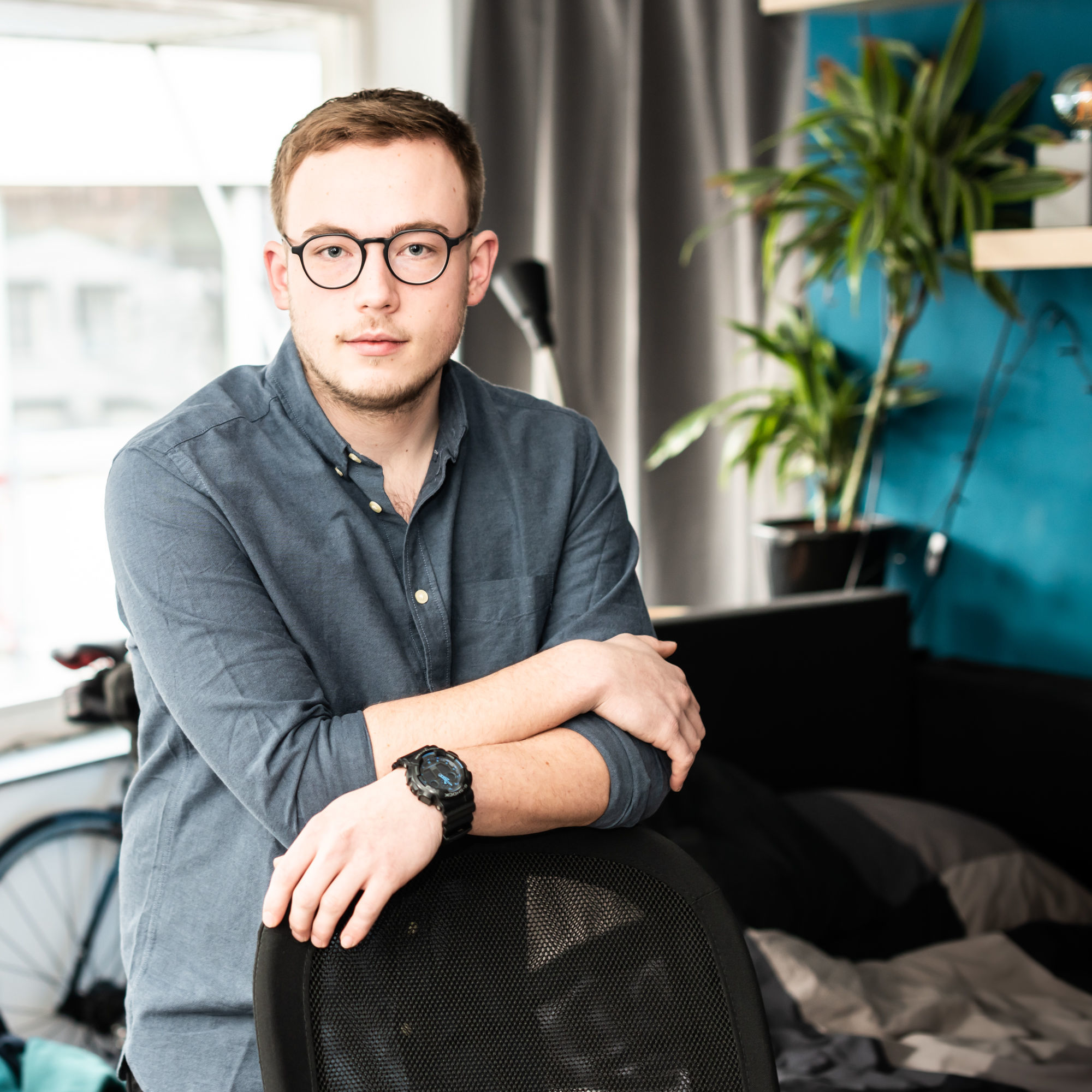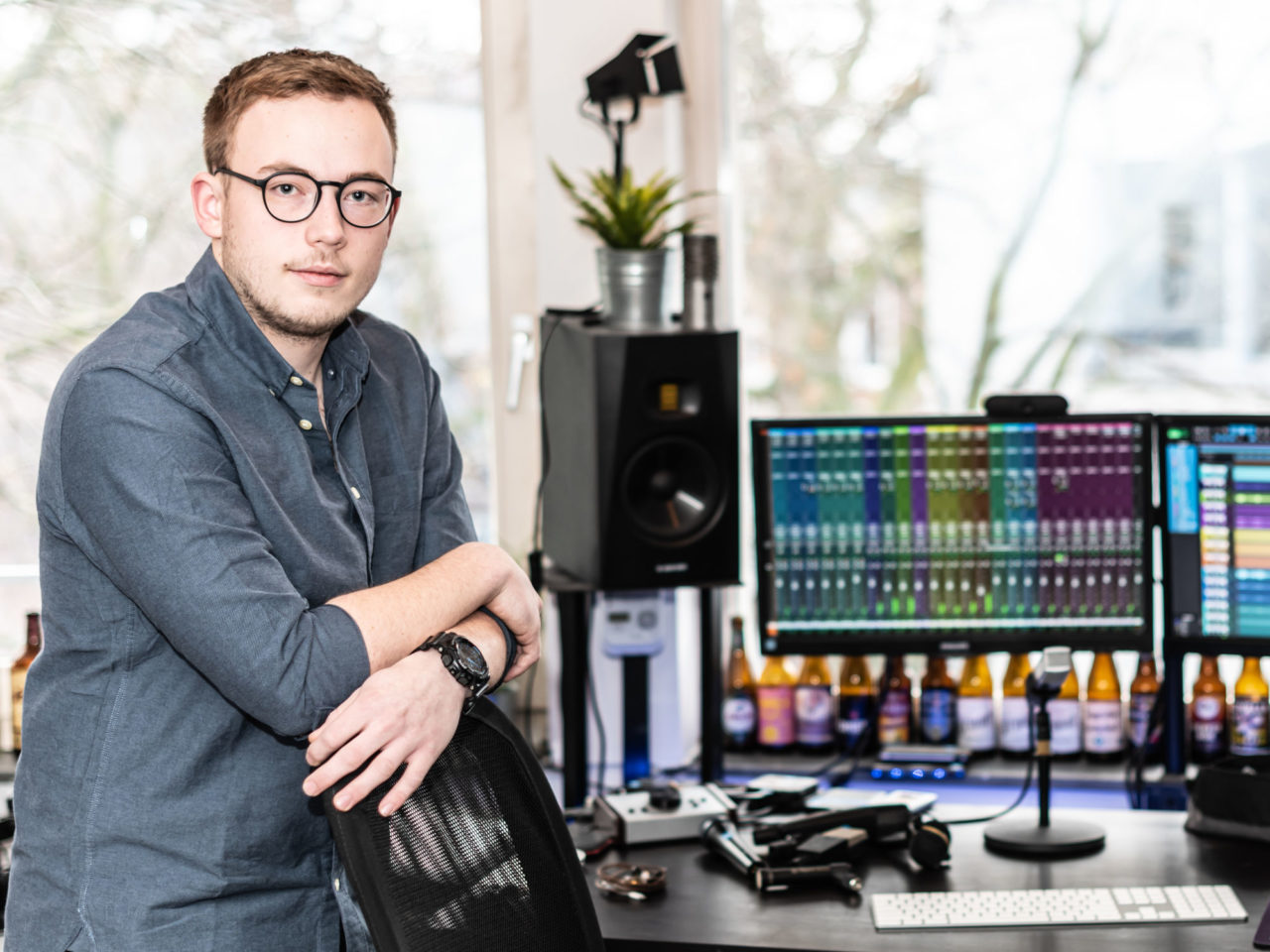In the vast majority of cases, technology is used to produce and listen to music. To achieve the right musical result in recordings or concerts, it is essential for the technician to have a very good understanding of music. Good sound engineers have a thorough musical education and therefore know what they are talking about. By combining training as a technician with a musical education, with our programme you will become the essential ‘sound director’ for musical recordings and performances.
Students in the Art of Sound programme choose one of three graduation profiles: recording (you will learn to make recordings of jazz or classical repertoire, with varying instrumentation and employing the very latest techniques); producing (you will specialise in multitrack studio production) or sound reinforcement (sound direction and sound design for live concerts and music-theatre productions).
We talk to Mick van Broekhoven, who is studying Art of Sound in the second year of the Bachelor's degree and intends to specialize in sound reinforcement.
Musical education is crucial
“I started playing drums and percussion around the age of 8, was able to play with a big band and in different bands a few years later, and through that came into contact with audio technology when I was about 15 and gained work experience at a young age. When at the end of my pre-university education I started to investigate possible study paths, I attended an Open Day at the Conservatoire and after that I did not visit other study programs, because this had to be it. Here I could connect my passions.”
“The run-up to the auditions was mainly new and fun for me because I had never played with a jazz trio before, but that went pretty well. Incidentally, I am now taking lessons from Ruben van Roon, which also includes pop and funk. The Music theory exam turned out to be more challenging and new students should not underestimate it. It is an important part of the course training and you find out that being able to spar with musicians on an equal level is key. Being able to read and interpret scores (live) is ultimately part of your job to supervise complex projects. I myself came in with an interest in the technology side of things, but this importance only dawned on me later.”

Can’t sit still
“I actually knew from the start that sound reinforcement was going to be my specialty. Not only because it already fascinated me before I started at the Conservatoire and had already experienced that it suited me, but I have learned that I enjoy the accompanying tension and time pressure and can handle it well. I wouldn't be able to "lock myself up" in a recording studio every day and am now constantly in different places, which I prefer. It appeals to me that when it’s live, you don’t have the time to tinker with things for a while.”
Students come in with varying degrees of experience and the study program ties in with that, Mick: “in the first two years you spend a lot of time together and the curriculum is largely the same for all, whereas in the second year you choose a main subject teacher in your desired specialization that guides you through projects. You will then specialize from the third year on. I intend to choose a major in sound reinforcement and a minor in classical recording. The latter is interesting, because microphone placement in that direction is so important and I can learn a lot from it and apply it within my specialization.”
Seizing and creating opportunities
“Own initiative is encouraged. If you want to set up a new project, there are several people within the Conservatoire who are willing to help and support you. Third or fourth-year students involve you in their projects, for support, or because they do not have the time (anymore) to take on a project. If you are curious, and help out others on a stage or in the studio, you will build a network of people who would like to work with you in the near future.”

Always evolving
Unfortunately, a lot of live music performances are canceled now, due to the Covid-19 pandemic, but Mick is positive about the future: “I cannot imagine life without live music and it will most certainly return. Plus now all kinds of other variants are popping up, for example sound direction and sound design for live streams, which I can now also gain experience with within the school. I have already been able to participate in the beautiful live stream from the Early Music department led by conductor Richard Egarr, the streams from the Jazz department in the Listen! project and the big band. If 600 people are listening online, you certainly get that ‘live’ feeling.”
“I am also exploring concepts such as spatial or immersive sound. With a pop band these techniques might be used more as an effect, where sounds move between multiple speakers through the room, but I like to work on large orchestral or big band projects and these techniques offer the opportunity to make instruments sound even more faithful.”
Amare
In what way is Mick already involved in the move to the new Amare building in the summer of 2021, where, in addition to the beautiful new concert and theater halls, new studios will also be set up for Art of Sound? “Obviously, a lot of new technology will be arriving… but seriously, the halls and studios are built from the ground up with the latest acoustics insights, so that is something to look forward to. I also hope to get the chance to get involved in the connection between the conservatoire and the partners within Amare, where large (inter)national orchestras and bands will be present in the classical domain, theater and pop music.”
Interested in studying at The Royal Conservatoire? Read more about the Art of Sound department via our 'Apply now' webpages.

